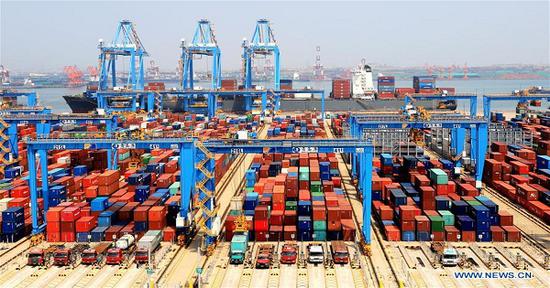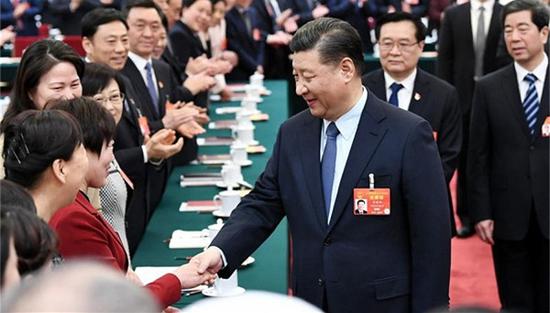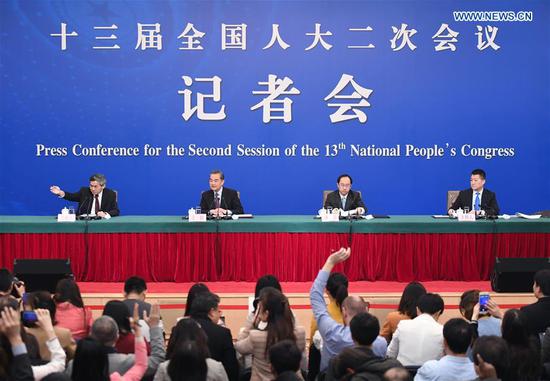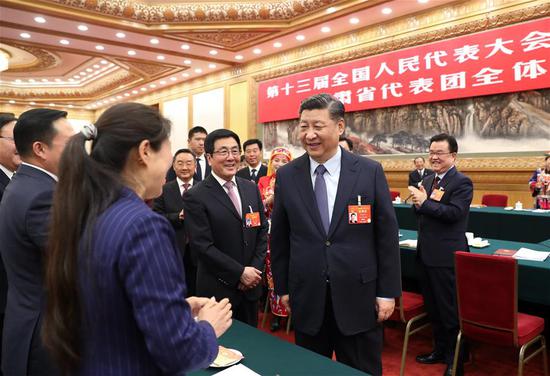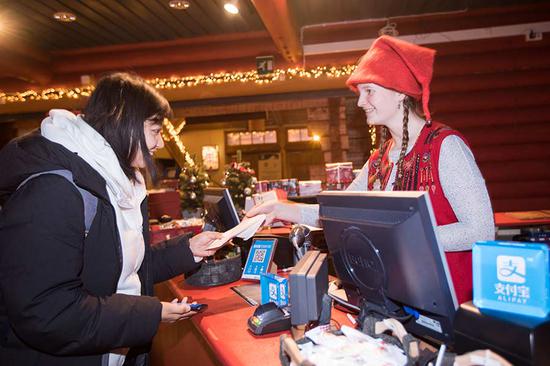
A customer pays by using Alipay in a shop in Rovaniemi, Finland. (Photo provided to China Daily)
Mobile payments
Digital payments are old hat as far as China is concerned. But now, China-originating e-payment tools such as Alipay and WeChat Pay are becoming increasingly common in many overseas tourist havens, as retailers, merchants, hotels, banks, airlines, travel agencies, transportation players and others adopt them, mainly to serve millions of Chinese tourists better.
Tencent's WeChat Pay is accepted in 49 economies around the world. It is soliciting a number of local smart solutions and service providers, or SSPs, to help its payment method deepen presence outside China, according to the company's overseas business director Fan Wei.
The idea is to make its WeChat app's payment function run as smoothly in a foreign market as it does at home, by incorporating more app programming interfaces and payment-to-marketing tools developed by third-party providers.
Early adopters of a comprehensive WeChat solution included Japan's Fuji-Q Highland amusement park. Since July last year, the park has introduced a mini program that offers introductions to facilities in Mandarin Chinese, provides special entrance offers and supports renminbi-denominated mobile payments.
Starting 2015, Alipay has formed nine strategic partnerships with local partners outside the Chinese mainland. This trend of fostering ecosystem development with local partners across Asia is likely to continue, according to a report by data and analysis company CB Insights.
Alipay's approach is to extend its own technologies and experience to incubate local payment solutions and allow for settlement using local currencies, which are mostly reflective in India's Paytm app and the Alipay HK app.
Alipay's parent Ant Financial, which is under the overarching Alibaba umbrella, has entered into a string of agreements in Bangladesh and Pakistan, pledging to help destination countries with technological upgrades to serve unbanked and under-banked populations.
In the tie-up with bKash of Bangladesh, Alipay will help create a local version of a mobile payment tool mimicking Alipay, with core functionalities like money transfer embedded on feature phones at the current stage.
Ant Financial signed a deal in January with Pakistan's Telenor Microfinance Bank to power the nation's first cross-border remittance service using blockchain technology.
"The new remittance service is one of the examples of how emerging technologies can help countries meet their digital and financial inclusion goals," said Eric Jing, chairman and CEO of Ant Financial.
Alipay, which started out as a payment solution to facilitate e-commerce transactions of Alibaba Group Holding Ltd, is in a position to provide the financial infrastructure critical to Chinese small and medium-sized enterprises as they expand overseas, said Li Chao, an analyst at iResearch.
"Ant needs to be present in markets where its corporate clients go. Economies related to the Belt and Road Initiative are no doubt among the biggest draw."















